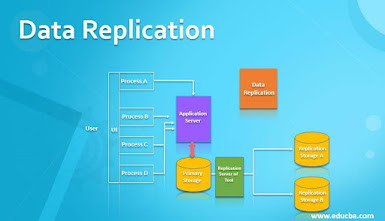PostgreSQL to Snowflake: Streamline Data Integration for Advanced Analytics
Introduction:
The integration of data from multiple sources is crucial for organizations aiming to gain valuable insights and make data-driven decisions. In this regard, moving data from PostgreSQL, a popular open-source relational database management system, to Snowflake, a cloud-based data warehousing platform, can be a game-changer. This article explores the benefits and features of integrating PostgreSQL with Snowflake, highlighting the seamless data migration, advanced analytics capabilities, and scalability provided by this powerful combination.
Seamless Data Migration:
Moving data from PostgreSQL to Snowflake is a seamless process that ensures data consistency and accuracy. Snowflake provides robust connectivity options and native support for PostgreSQL, enabling organizations to easily extract data from their PostgreSQL databases and load it into Snowflake. The migration process maintains the integrity of the data, preserving the relationships, structure, and format.
Enhanced Analytics Capabilities:
Snowflake is renowned for its advanced analytics capabilities, including support for complex queries, machine learning, and data modeling. By migrating data from PostgreSQL to Snowflake, organizations can leverage these advanced analytics features to gain deeper insights into their data. Snowflake's cloud-native architecture enables high-performance querying and processing, allowing organizations to derive valuable insights from large and complex datasets.
Scalability and Performance:
One of the key advantages of Snowflake is its scalability and performance. With Snowflake's elastic compute resources, organizations can scale their data processing power according to their needs. This scalability allows for efficient handling of increasing data volumes, ensuring optimal performance even with large datasets. Snowflake's unique architecture separates storage from compute, enabling organizations to scale each independently, resulting in cost-effective data processing.
Built-in Data Sharing and Collaboration:
Snowflake provides built-in data sharing capabilities, allowing organizations to securely share data with partners, customers, or other stakeholders. This feature is particularly valuable when collaborating on data-intensive projects or sharing data across different departments or organizations. By migrating data from PostgreSQL to Snowflake, organizations can leverage Snowflake's data sharing capabilities to enable real-time data collaboration and improve decision-making processes.
Robust Security and Compliance:
Snowflake places a strong emphasis on security and compliance. It offers advanced security features, including encryption at rest and in transit, access controls, and comprehensive audit logs. By migrating data from PostgreSQL to Snowflake, organizations can take advantage of Snowflake's security measures to ensure the protection and privacy of their sensitive data. Snowflake also complies with various industry and regional data security standards, providing peace of mind for organizations with strict compliance requirements.
Cost-Effective Data Management:
Snowflake's cloud-based architecture offers cost-effective data management solutions. With its pay-as-you-go pricing model, organizations only pay for the resources they consume, eliminating the need for upfront investments in hardware or infrastructure. Snowflake's efficient data compression and storage optimization techniques further reduce costs by minimizing storage requirements. Additionally, Snowflake's auto-scaling capabilities ensure optimal resource utilization, helping organizations optimize costs while maintaining high performance.
Conclusion:
Integrating PostgreSQL with Snowflake provides organizations with a powerful solution for seamless data migration, enhanced analytics capabilities, scalability, and robust security. By leveraging Snowflake's advanced features and cloud-native architecture, organizations can unlock the full potential of their data, derive valuable insights, and make data-driven decisions. The PostgreSQL to Snowflake integration empowers organizations to leverage advanced analytics, collaborate on data, ensure data security and compliance, and optimize data management costs. By choosing to migrate data from PostgreSQL to Snowflake, organizations can harness the power of this powerful combination to gain a competitive edge in today's data-driven world.




Comments
Post a Comment